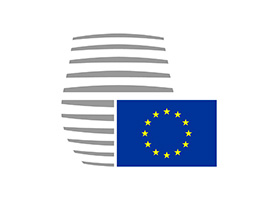
The EU continues to promote fair tax competition and address harmful tax practices. The Council today adopted conclusions on the revised EU list of non-cooperative jurisdictions for tax purposes, deciding to maintain the following countries on the list: American Samoa, Fiji, Guam, Palau, Panama, Samoa, Trinidad and Tobago, US Virgin Islands and Vanuatu.
The Council regrets that these jurisdictions remain non-cooperative on tax matters and invites them to engage with the Code of Conduct Group in order to resolve the identified issues.
The revised list (Annex I) only includes countries that either have not engaged in a constructive dialogue with the EU on tax governance or have failed to deliver on their commitments to implement the necessary reforms. Those reforms should aim to comply with a set of objective tax good governance criteria, which include tax transparency, fair taxation and implementation of international standards designed to prevent tax base erosion and profit shifting.
Further commitments by cooperative countries
In addition to the list of non-cooperative tax jurisdictions, the Council approved the usual state of play document (Annex II) which reflects the ongoing EU cooperation with its international partners and the commitments of these countries to reform their legislation to adhere to agreed tax good governance standards. Its purpose is to recognise ongoing constructive work in the field of taxation, and to encourage the positive approach taken by cooperative jurisdictions to implement tax good governance principles.
A number of countries made commitments in particular with regard to the OECD Forum on Harmful Tax Practices (FHTP) recommendations on the effective implementation of the economic substance requirements or the implementation of the OECD domestic tax base erosion and profit shifting (BEPS) country-by-country Reporting (CbCR) minimum standards. Several other countries are also taking steps to reform their preferential tax regimes or further improve their legislation. The updates are reflected in the Code of Conduct Group report that the Council also approved.
Background
The EU list of non-cooperative jurisdictions for tax purposes was established in December 2017. It is part of the EU’s external strategy on taxation and aims to contribute to ongoing efforts to promote tax good governance worldwide.
Jurisdictions are assessed on the basis of a set of criteria laid down by the Council in 2016. These criteria cover tax transparency, fair taxation and implementation of international standards designed to prevent tax base erosion and profit shifting. Work on the list is a dynamic process. As of 2020, the Council updates the list twice a year. The next revision of the list is scheduled for October 2022.
The list is set out in Annex I of the Council conclusions on the EU list of non-cooperative jurisdictions for tax purposes. The conclusions also include a state-of-play document (Annex II) identifying cooperative jurisdictions which have made further improvements to their tax policies or related cooperation.
The Council’s decisions are prepared by the Council’s Code of Conduct Group which is also responsible for monitoring tax measures in the EU member states. The Chair of the Group maintains regular dialogue with jurisdictions concerned. More information on its work is published in the Code of Conduct Group report to the Council.